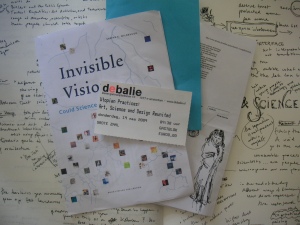I was invited to make a presentation about my newest research project at Institut für Bibliotheks- und Informationswissenschaft (IBI) at Humboldt University in Berlin last week. It is always good to discuss your research with new people. At the moment I am struggling with the delimiting and how to proceed with the actual data collection as I am going to study how researchers are representing them selves online in different environments, not only in scholarly blogs which have been my focus earlier.
As a researcher today you leave traces in all sorts of digital settings and you can apart from just presenting yourself engage in conversation, produce or create output and use data or information. The flora of possible online tools and environments where a researcher is made visible is developing from the simple University homepage to social media activity in for example Twitter. The list of different tools or activities include social networks sites particularly for researchers like ResearchGate and Academia, social bookmarking and sharing also through reference managers like Mendeley or Zotero, or writing in blogs and creating other content online. Things you do as a researcher earlier not as traceable suddenly is making traces. How does these new possibilities relate to scholarly communication and the choices you make as a researcher. Researchers are part of communicating and producing knowledge and making research available and visible for others, but it´s not all about sharing but also to get the merits. My project is dealing with these new forms of representing yourself as a researcher/scholar/academic online and the connection to credibility and trust. The differences between disciplines in traditional scholarly communication and how you publish results is known, and there are huge differences in how science or research is performed. The difficult thing I feel now is to identify a way to choose a discipline (or epistemic culture) to study. Sometimes it’s just to make the choice and “get your hands dirty” – like one of my supervisors told me in the beginning of my PhD studies when I were in the same doubts of “making the wrong choice” and hesitated to just get going with the data collection…

